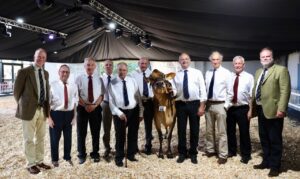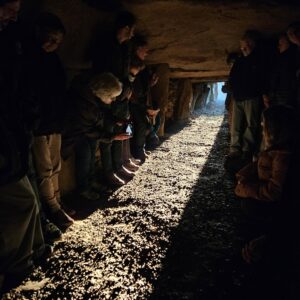
The following text is taken from the opening address by Senator Lyndon Farnham, deputy Chief Minister, States of Jersey, at the 2021 Jersey Farming Conference
‘The Jersey Farming Conference is an event that, over the last ten years, has offered us the opportunity to look forward – to scan the farming horizon – and ensure we are best placed to take advantage of the opportunities we have today. At the same time, we must ensure that the decisions we take do serve to maintain agriculture in the future as a vital part of our Island economy and community.
However, whilst looking forward, let’s not gloss over the challenges of today – let’s acknowledge some realities: the global pandemic, Brexit, supply chain challenges, labour shortages, price increases in energy and raw materials coupled with food price deflation over a long period… and let’s not forget the weather and the impact of climate change.
On top of these global issues, our own local challenges – increased costs, labour, property, freight and logistics, environmental concerns – all combine to make this one of the toughest trading periods of our lifetime.
I don’t wish to dwell on the doom and gloom, but we do understand.
Over the last 18 months, these circumstances have required our community and government to take unprecedented measures … in terms of managing the health of our population and in ensuring we maintain critical infrastructure and support the continuation of a robust and diverse economy.
Farming remains a vital part of the Island’s DNA. Rest assured, we will continue to make every effort to ensure it continues as an essential element of our economy and Island life – it is precious and we recognise it is fragile.
The rural sector has stepped up to the recent challenges and has continued to operate within an ever-changing environment … and I am aware this has not been easy. Thank you for your efforts. Thank you for adapting to the new realities and thank you for continuing to operate in a responsible manner, having regard for the welfare of your staff and the general public.
At this time, we should not forget that agriculture is an essential activity … and we all rely on the food that farmers produce to sustain us.
We must also recognise that our food system is complex and is fully integrated with neighbouring jurisdictions. It is a system that relies on a delicate balance between production of food for local consumption, as well as an activity that seeks to achieve economies of scale and efficiencies through opportunities that can only be found in the export market.
Economic sustainability of the sector can only be achieved by maintaining this balance – by making the best of what we have – the cow and the potato are still central to our farming landscape – while also continuing to develop new opportunities, whether that is based on old traditions, such as cider making or new such as medicinal cannabis.
From 1 January 2022 we are establishing a new Department for the Economy.
This will bring together a team of people and the resources required to deliver on government economic strategies and policies in all areas … including financial services, digital economy and the local economy … which includes tourism, hospitality, retail, culture, arts, heritage, sport and the rural and marine sectors.
The Department will deliver a revised Rural Economy Strategy in 2022, which will be timed to run alongside the Island Plan. The strategy will be delivered in a collaborative manner, as a partnership between community, government and industry. Working together has never been more important than it is now.
To this end, I am pleased that government had already made a commitment and has increased the value of the rural economy support budget in 2020 and 2021, and indeed, has approved plans to make further increases over the next two years.
In 2022, we will be able to increase funding to the rural initiative scheme to assist business invest in projects designed to improve productivity and economic sustainability – and this provided to every rural business that qualifies for entry on to the Rural Support Scheme.
The development of a revised strategy has been a process of evolution rather than revolution, as we seek to maintain the best of what we already have, as well as to enable Island business to take advantage of new opportunities.
We stand ready to work with industry to embrace and adopt new technology and improve productivity across all sectors. This includes the significant progress already made on the establishment of a hemp and medicinal cannabis industry, which will bring significant diversification opportunities to the rural sector.
The successful adoption of the LEAF Marque Standard by all land dependent businesses will remain a central focus and will enable us to demonstrate and quantify the significant contribution made by farmers in maintaining, protecting and improving our environment.
Our countryside is a special place. It has a unique character and is highly valued by the community. Our wellbeing is directly linked to the quality of our landscape … and it is farmers who provide the primary care for this vital Island asset, as they have done for centuries.
This annual Jersey Farming Conference remains an important event in our farming calendar. We recognise that we are stronger when we face these challenges together and work collectively to ensure that farming industry remains a viable and sustainable activity at the centre of Island life.’




